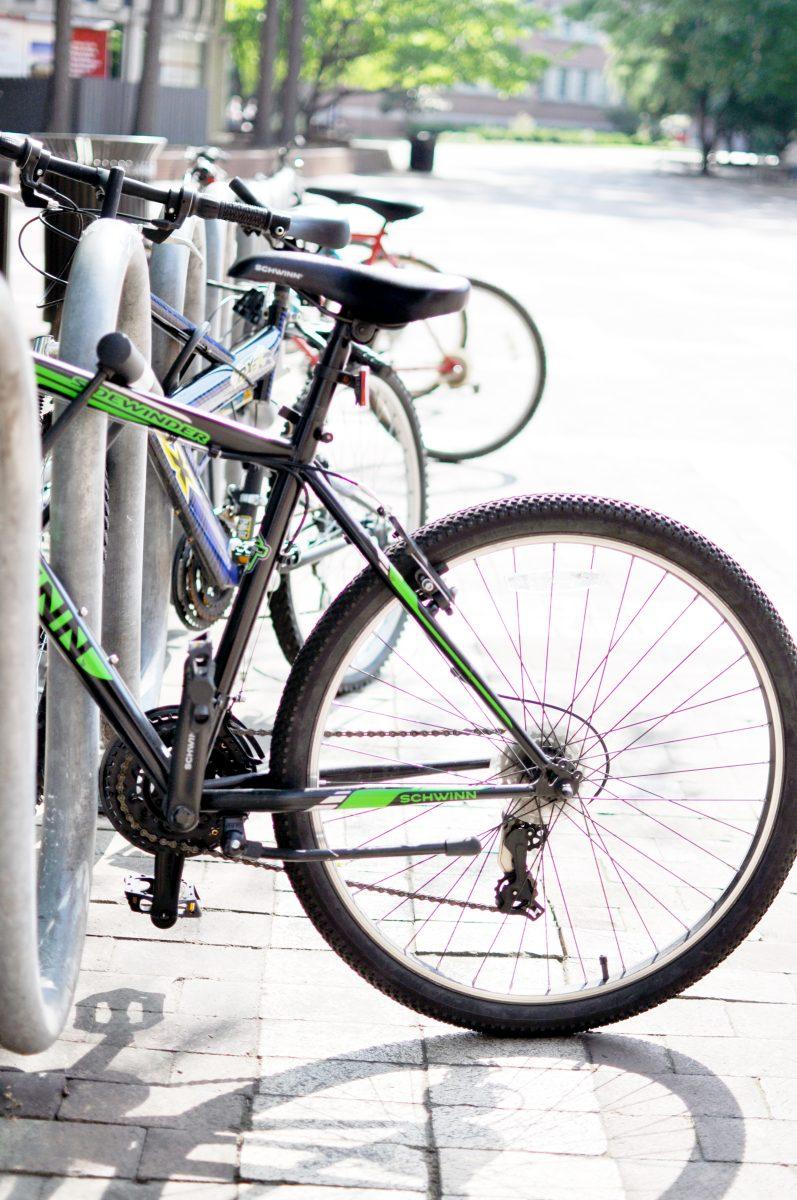The N.C. State Sustainability Fund Advisory Board has chosen to fund five student-submitted project proposals, equaling $30,000 in funds, which aim to promote and improve campus sustainability during the 2014-2015 academic year.
All five of the projects are set to be completed within one year and will begin on July 1, according to Nate Pedder, chairman of the board for the 2014-2015 cycle and a senior in mechanical engineering and political science.
The funded projects will include the purchasing of new bikes for bike-sharing programs that will include mobile app-controlled locks; an N.C. State chapter of the Food Recovery Network, which delivers uneaten dining hall food to nearby nonprofits; the development of a community garden, solar greenhouse and apiary next to the College of Veterinary Medicine; the installation of a sculptural solar energy-producing system on Centennial Campus; and a pilot project that will test the effectiveness and efficacy of using solar trash compacters on campus.
“Looking at the projects we have coming up next year, I am really excited because we’re covering such a wide array of sustainability,” Pedder said. “I think each will do so much for campus to increase University sustainability goals.”
The Sustainability Fund, which is paid for by the entire student body through a $1.50 student fee, is a project created to fund projects that promote sustainability on campus, according to Pedder.
Two years ago, a petition gaining about 2,000 signatures circulated campus urging the University to set up the Sustainability Fund in order to keep up with the campus’ increasing need to develop more environmentally sustainable practices. Last year was the first operational year for the Sustainability Fund, and these projects were the first five to be funded by the system.
Jake Phillips, a sophomore in environmental science, said he thinks it’s important that N.C. State join the national effort college campuses are making to be more sustainable.
“Being an engineering-dominant campus, I’m really excited to see modern and futuristic innovation worked into environmentally friendly practices,” Phillips said.
The city of Raleigh has already added solar trash compactors to Hillsborough Street, which made them an obvious choice for a project to try at N.C. State, according to Pedder.
“That just seems like such a smart thing to do, using energy that is already available to decrease the amount of times you have to empty a trash bin and decreasing the amount of trash that is going into landfills,” Pedder said.
Although he said most of the projects have incredible potential and will be beneficial to the University, Phillips said he is a bit skeptical of the bike-share program.
“I’ve seen these in big cities, and while they’re pretty neat, I’ve often found them to be impractical,” Phillips said. “The locking locations are usually never where you need them to be, and it’s hard to track down an available bike when there isn’t a large abundance of them.”
Phillips said he was most excited about the solar programs that are going to be constructed.
“Solar energy is a fantastic technology that needs to be experimented and implemented more,” Phillips said. “I also like the idea of having a functional garden on campus. It makes a lot of sense, given the agricultural history of this institution.”
Phillips said only $30,000 in grants were awarded this year because the Sustainability Fund only had one semester worth of funds and some of the funds must be kept in reserve.
Next year, however, the Sustainability Fund plans to fund somewhere along the lines of $70,000 worth of grants, Pedder said.
“It will really make a huge difference, because this year we had about $200,000 worth of applications, which is a huge number for a grant application that is in its first year,” Pedder said. “We imagine that number will only continue to grow.”








